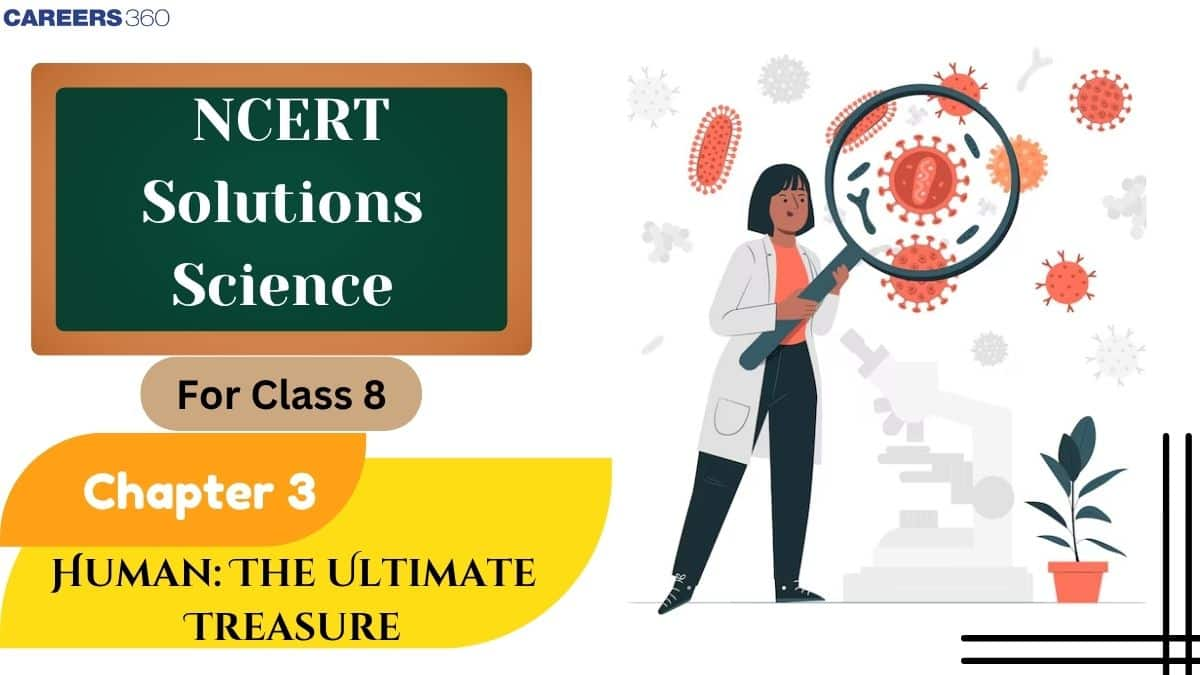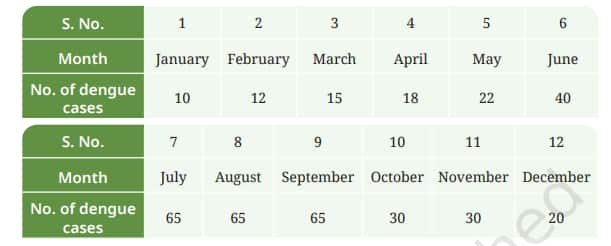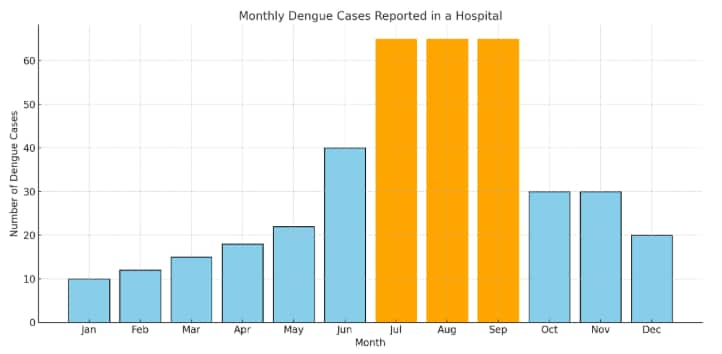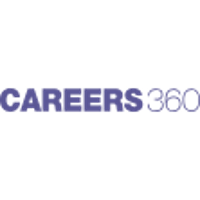Aakash Repeater Courses
ApplyTake Aakash iACST and get instant scholarship on coaching programs.
The NCERT Solutions for Class 8 Science Chapter 3 Health: The Ultimate Treasure helps students understand concepts about health, including why a person falls ill. This chapter covers different classifications of diseases, reasons, symptoms, and ways of transmission. It also includes the topic of antibiotics and the phenomenon of antibiotic resistance. The NCERT Solutions build a strong foundation in the subject by helping students understand important topics clearly.

Health: The Ultimate Treasure Class 8 Solutions also focuses on the importance of hygiene in daily life, cleanliness of the environment, and nutrition. The solutions provide examples and definitions that make it easy for students to learn. Well-labelled diagrams are also added wherever required. Health: The Ultimate Treasure NCERT PDF is available for students to download easily. Practicing these questions regularly builds confidence and helps students improve their exam performance.
Students can easily download the PDF of the chapter Health: The Ultimate Treasure using the link provided below. It's a valuable resource for studying during the exam to save time. The NCERT Solutions for Class 8 are written in simple language, making it easier for students to understand all the important concepts without any confusion.
Given below are the detailed answers to all the questions prepared by subject experts. These solutions are prepared as per the latest syllabus and are great for doing homework and last-minute revision. Going through the Health: The Ultimate Treasure questions and answers helps students understand the concept of health, types of diseases, and ways to prevent them.
Question 1: Group the diseases shown in the images as communicable or non-communicable.

Answer: The diseases are classified into communicable and non-communicable as given below:
Communicable diseases - Cold and flu, Typhoid, Chickenpox
Non-communicable diseases - Diabetes, Asthma
Question 2: Diseases can be broadly grouped into communicable and non-communicable diseases. From the options given below, identify the non-communicable diseases.
(i) Typhoid
(ii) Asthma
(iii) Diabetes
(iv) Measles
Options
(a) (i) and (ii)
(b) (ii) and (iii)
(c) (i) and (iv)
(d) (ii) and (iv)
Answer: The correct answer is option (b), (ii), and (iii)
Explanation: Asthma and diabetes are non-communicable diseases as they do not spread from one person to another.
Question 3: There is a flu outbreak in your school. Several classmates are absent, while some are still coming to school coughing and sneezing.
(i) What immediate actions should the school take to prevent further spread?
(ii) If your classmate, who shares the bench with you, starts showing symptoms of the flu, how can you respond in a considerate way without being rude or hurtful?
(iii) How can you protect yourself and others from getting infected in this situation?
Answer:
(i) To prevent further spread of the flu, the school can advise the sick students to stay at home. Schools have to sanitise the classrooms regularly and provide good ventilation in the classes. They can also ask students and teachers to use masks and a handkerchief while sneezing or coughing.
(ii) If your classmate, who shares the bench with you, starts showing symptoms of the flu, you can gently ask him to inform the teacher and visit the school nurse to get medicine.
(iii) To protect yourself and others from getting infected, try to wear a mask and wash your hands regularly, which prevents the entry of germs into the body. Avoid close contact with the sick classmates, and maintain good hygiene. Some of these methods can reduce the risk of catching the flu.
Question 4: Your family is planning to travel to another city where malaria is prevalent.
(i) What precautions should you take before, during, and after the trip?
(ii) How can you explain the importance of mosquito nets or repellents to your sibling?
(iii) What could happen if travellers ignore health advisories in such areas?
Answer:
(i) Before the trip, carry the important medicines with you and check for any vaccinations. During the trip, wear full-sleeved clothes, use mosquito repellents, and sleep under mosquito nets. Some of these precautions can prevent the biting of mosquitoes.
(ii) Mosquito nets or repellents help in keeping the mosquitoes away from us while sleeping. They protect us from diseases like malaria, which is spread by mosquito bites. This is how you can tell the importance of nets or repellents to your sibling.
(iii) If travellers ignore health advisories, it may lead to serious illnesses like malaria, which can make them very sick. In many cases, this can lead to hospitalisation as well.
Question 5: Your uncle has started smoking just to fit in with his friends, even though it is well known that smoking can seriously harm health and even cause death.
(i) What would you say to him to make him stop, without being rude?
(ii) What would you do if your friend offered you a cigarette at a party?
(iii) How can schools help prevent students from indulging in such harmful habits?
Answer:
(i) To help your uncle stop smoking, you can say, “Uncle, smoking is really dangerous, and it can affect your lungs and heart. It also increases the risk of cancer and heart attacks.”
(ii) If a friend of mine offered me a cigarette at a party, I would politely say, “ No, thanks, I care about my health a lot and I don't want to try or start anything that can harm me.”
(iii) Schools can organise awareness campaigns and programs to make students know about the harmful effects of these things. They can also put up some posters and charts on the dangers of smoking.
Question 6: Saniya claims to her friend Vinita that “Antibiotics can cure any infection, so we don’t need to worry about diseases.” What question(s) can Vinita ask her to help Saniya understand that her statement is incorrect?
Answer: Vinita can ask the following questions to help Saniya understand her mistake:
Do you know that antibiotics will only work against bacterial infections? They do not work against viruses or diseases caused by protozoa.
Have you heard that using antibiotics a lot can make them less effective because bacteria become resistant to antibiotics?
Are antibiotics effective in the case of viral infections?
Question 7: The following table contains information about the number of dengue cases reported in a hospital over one year:

Make a bar graph of the number of cases on the Y-axis and the month on the X-axis. Critically analyse your findings and answer the following:
(i) In which three months were the dengue cases highest?
(ii) In which month(s) were the cases lowest?
(iii) What natural or environmental factors during the peak months might contribute to the increase in dengue cases?
(iv) Suggest a few preventive steps that the community or government can take before the peak season to reduce the spread of dengue.
Answer:

(i) Three months in which the dengue cases were the highest are July, August, and September, all having 65 cases each.
(ii) January, with 10 cases, is the month with the lowest cases.
(iii) During the months from July to September, many regions experience the monsoon season. The water from rainfall gets collected in places that become breeding grounds for mosquitoes. Warm and humid conditions are the environmental factors that contribute to the increase in dengue cases.
(iv) A few preventive steps that the community or government can take before the peak season to reduce the spread of dengue are given below
Clean and remove the stagnant water from the containers, drains, and other places.
Spray mosquito repellents in mosquito-prone areas.
The government can also organise campaigns and school programs to raise public awareness.
A proper system for waste disposal and drainage should be maintained by local authorities.
Question 8: Imagine you are in charge of a school health campaign. What key messages would you use to reduce communicable and non-communicable diseases?
Answer: If I were in charge of a school health campaign, I would focus on the following key messages.
To reduce communicable diseases:
Keep yourselves clean as well as the surrounding environment.
Wash your hands regularly with soap and water to remove pathogens.
Cover your mouth and nose while coughing or sneezing.
Try to wear a mask in crowded places to provide protection.
Avoid sharing personal items like towels and handkerchiefs.
While you are unwell, try to stay at home. This helps the body recover quickly and also minimizes the spread of disease to others.
To reduce non-communicable diseases
Eating a balanced diet that is rich in fruits and vegetables.
Exercise regularly and stay active.
Avoid smoking and alcohol.
Go for regular health check-ups to monitor your body.
Question 9: It is recommended that we not take an antibiotic for a viral infection like a cold, a cough, or the flu. Can you provide the possible reason for this recommendation?
Answer: It is recommended that we not take an antibiotic for a viral infection like a cold, a cough, or the flu. This is becuase the antibiotics work only against the bacterial infection. They do not work against viruses or diseases caused by protozoa. The overuse of antibiotics will lead to a decline in their effectiveness, causing a phenomenon known as antibiotic resistance.
Question 10: Which disease(s) among the following may spread if drinking water gets contaminated by the excreta from an infected person?
Hepatitis A, Tuberculosis, Poliomyelitis, Cholera, Chickenpox.
Answer: The diseases that may spread if drinking water gets contaminated by the excreta from an infected person are:
Hepatitis A
Poliomyelitis
Cholera
Question 11: When our body encounters a pathogen for the first time, the immune response is generally low, but on exposure to the same pathogen again, the immune response by the body is much more compared to the first exposure. Why is it so?
Answer: When our body encounters a pathogen for the first time, the immune response is generally low, and it is because the immune system takes time to recognise and fight against the pathogen. But, on exposure to the same pathogen again, the immune system remembers the pathogen and quickly attacks it. This makes the response much faster and stronger than before.
Also, check the NCERT Books and the NCERT Syllabus here
To answer questions from the chapter Health: The Ultimate Treasure with confidence, students should understand the topics clearly. Health: The Ultimate Treasure questions and answers explain what good health means, different types of diseases, and how we can prevent different types of diseases. Below are some useful steps that students can follow to prepare well.
First, they must carefully read the chapter to understand what keeps us healthy and what causes disease.
Try to understand the difference between communicable and non-communicable diseases given in the NCERT Solutions for Class 8 Science Chapter 3 Health: The Ultimate Treasure.
Create flow charts or flash cards outlining the causes, symptoms, prevention, and treatment of common diseases such as the flu, malaria, and diabetes.
The Health: The Ultimate Treasure NCERT PDF provides an excellent explanation of how vaccines protect us from serious illnesses.
Practice different types of questions and exercises provided in the NCERT Solutions for Class 8 Science to test the understanding and improve the problem-solving skills.
NCERT Solutions For Class 8th: Subject-wise
Here are some important topics from this chapter that will help students revise and understand the concepts more easily. Students can use the NCERT Solutions for Class 8 Science Chapter 3 Health: The Ultimate Treasure to revise and better understand important topics.
Introduction to Health
How to Stay Healthy
Diseases: Causes and Types
Prevention and Control of Diseases
Antibiotic Resistance
Communicable and Non-Communicable Diseases
Role of Hygiene and Sanitation
Healthy Lifestyle and Habits
Solving important questions like the one given below helps students understand the topic better. To do well in exams, it's good to practise different types of questions. For this, students can use Health: The Ultimate Treasure Class 8 Solutions as it makes the concepts clear and easy to understand.
Question 1: Antibiotics are effective against
Options
(a) Viruses only
(b) Bacteria only
(c) Both viruses and bacteria
(d) Fungi only
Answer: The correct answer is option(b), Bacteria only
Explanation: Antibiotics kill or inhibit bacteria but are ineffective against viruses because viruses live inside host cells and have different structures.
Given below are the solution links for all chapters. Students can refer to these to perform well in the exams.
Careers360 is best for the NCERT solutions. Here, students will find clear and accurate answers in easy and simple language. These solutions are useful for exam preparation, for completing homework, and for doing quick revision.
The name of Chapter 1 of Class 8 Science is Exploring the Investigative World of Science. It introduces students to the experiments and scientific methods that help them to understand the world around them.
The name of Chapter 9 of Class 8 Science is The Amazing World of Solutes, Solvents, and Solutions. This chapter helps students understand how different substances mix and form solutions in everyday life.
Yes, NCERT books have changes for the academic year 2025-26. New books have recently been launched in accordance with the NEP-2020 and guided by NCF-SE-2023.
To prepare best for the Class 8 science, students are advised to first start by understanding the concepts from the NCERT textbooks. Prepare short notes, revise regularly, and practice diagrams as well.
Application Date:24 July,2025 - 23 August,2025
Application Date:24 July,2025 - 23 August,2025
Late Fee Application Date:06 August,2025 - 10 August,2025
Late Fee Application Date:06 August,2025 - 10 August,2025

Take Aakash iACST and get instant scholarship on coaching programs.

This ebook serves as a valuable study guide for NEET 2025 exam.

This e-book offers NEET PYQ and serves as an indispensable NEET study material.

As per latest syllabus. Physics formulas, equations, & laws of class 11 & 12th chapters
As per latest syllabus. Chemistry formulas, equations, & laws of class 11 & 12th chapters
As per latest 2024 syllabus. Study 40% syllabus and score upto 100% marks in JEE